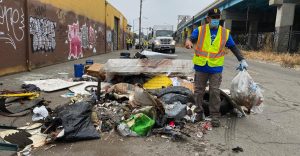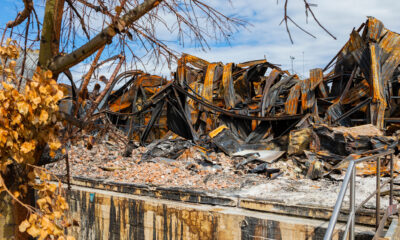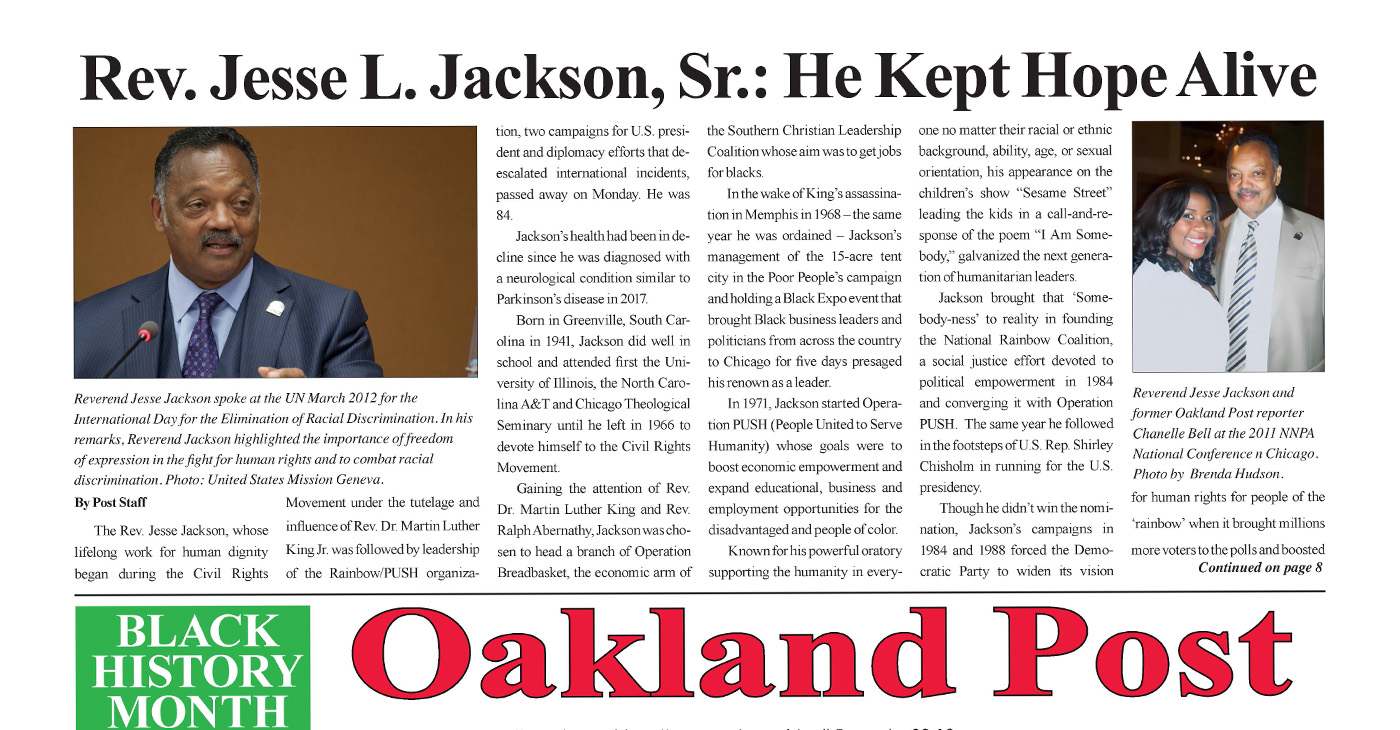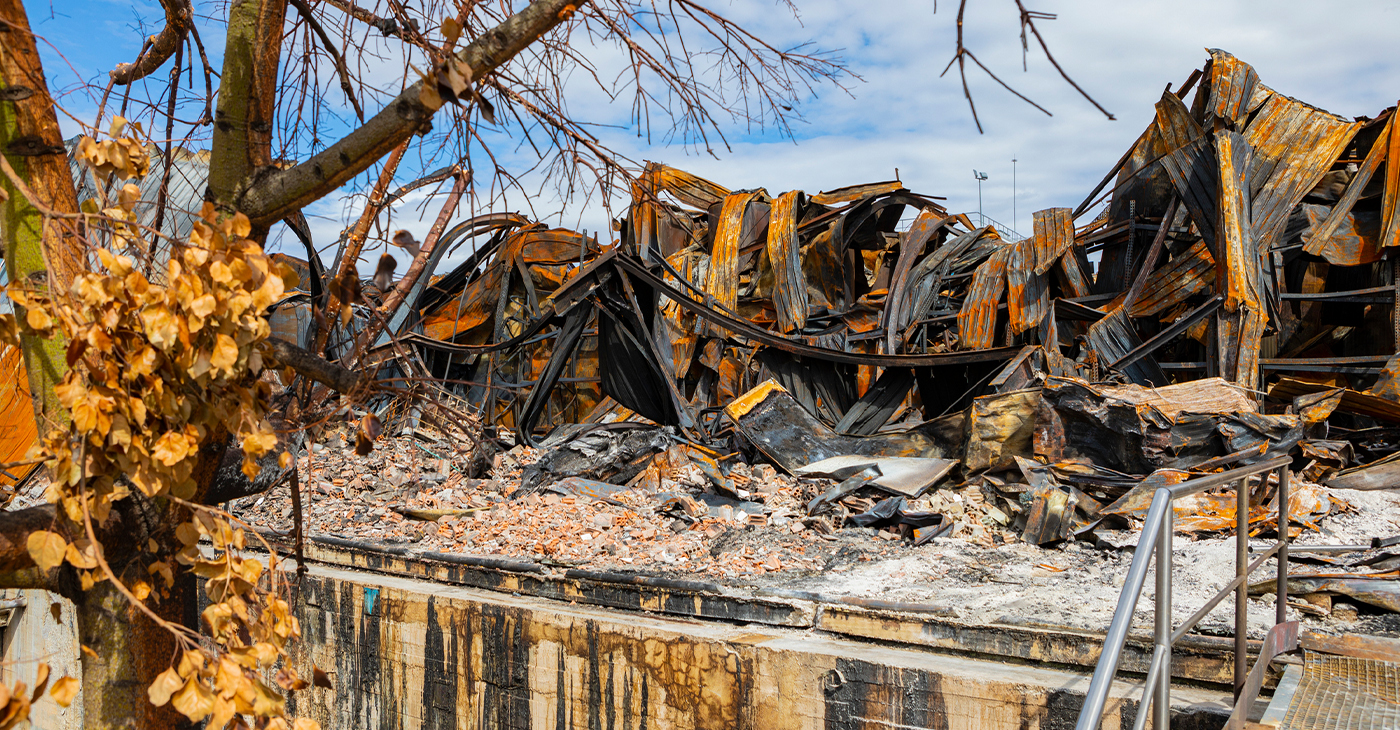By Charlene Muhammad
California Black Media
April Valentine, 31, planned to celebrate her new birth with family and friends, but instead her loved ones found themselves in front of Centinela Hospital in Inglewood on Jan. 28, protesting her death.
Valentine’s family alleges that she complained about leg pain for hours during the birth of her child on Jan.10, but was ignored and neglected by her caretakers at the medical center that specializes in maternal care.
Valentine, pregnant with her first child, died that day.
Her plight is only one episode, advocates say, in what is an escalating crisis affecting Black women during pregnancy throughout California and across the country.
Recently, a group of advocates collaborated to bring awareness to the Black maternal and infant health crisis with a free screening of the film “Birthing Justice: Every Woman Deserves A Beautiful Birth Story” at The Miracle Theater in Inglewood. A panel discussion complemented the feature-length documentary.
“Birthing Justice” covers the issues underpinning — and helping to fuel — the maternal health crisis within the African American community and articulates best practices to enhance birthing equity for all women, especially Black women.
The audience completed a preliminary survey online prior to viewing the film, and later filled out a post survey online. Denise Pines, the executive producer of “Birthing Justice” and co-founder of Women In The Room Productions, talked about the goal of the survey.
“We probably will end up having 100 screenings, and we want to share with legislatures, policy makers, with healthcare institutions, the lived experience of people who are coming into the screenings so they actually have the real data, and we can use that to make the case for some of the actions we want to see happen,” she said.
The filmmakers explored what they are calling a “national epidemic” in four regions: Washington, D.C., Augusta, Georgia, and several areas in Missouri, and California. They interviewed women affected by current policies — birthing moms and healthcare professionals, as well as birthing advocates, activists, and policy makers at the forefront of advancing policy change.
According to the Centers for Disease Control and Prevention (CDC), Black women were three times more likely to die from a pregnancy-related cause than white women. Multiple factors contributed to these disparities, such as variation in quality healthcare, underlying chronic conditions, structural racism and implicit biases.
“Birthing Justice” strongly emphasized that the high mortality rates among Black women are not due to their genetic makeup, what they ate, how they behaved, nor did any bad habits place them in this situation.
When compared to poor white women with less education, Black women had worse death rates. Black women are unable to buy or educate themselves out of being a statistic when it comes to pregnancy-related deaths. The cause is not race, but racism.
Women In The Room Productions has partnered with the National Birth Equity Collaborative (NBEC), one of the leading policy organizations in the country, to support legislation and public education they believe will make a difference.
One such policy change is the Black Maternal Health Momnibus Act of 2021, which is comprised of 12 bills addressing various dimensions of the Black maternal health crisis. One of the bill’s sponsors, Democratic U.S. Rep. Lauren Underwood from Illinois appeared in the film.
Pastor Thembekila Smart, executive director of the Women of Southern Christian Leadership Conference, Southern California Chapter, moderated the four-person panel in Inglewood and kicked off the discussion with her own birthing stories, ranging from an emergency C-section with her second child during which the doctor asked her husband “if one must be saved, who would it be: his wife or his son?” Her third birth was in her 24th week and her son weighed hardly one pound. Both babies survived and are now thriving young men, Smart shared.
“We did not have any idea that our birthing experience would go this way,” said Smart, who described the current state of Black maternal health in the United States as “medical apartheid.”
During their discussion, the panelists amplified the main themes of “Birthing Justice” as they made the case that encouragement, resources and support are necessary, along with improved medical care, to transform the maternal care system.
Dr. LaTanya Hines, an OB/GYN and member of the Association of Black Women’s Physicians (ABWP) said she was an unapologetic and proud advocate for Black women.
“Nobody should die in pregnancy,” she said.
Dr. Hines addressed the importance of OB/GYN care, stressing the need to start conversations with patients from their first visit about planning their pregnancies. She said their vital statistics are also critical — making sure that their blood pressure, blood sugar and weight were well controlled before they got pregnant so that their birthing experience is healthy and safe.
“I am going to work with you, and we will have a shared decision-making plan,” Hines emphasized. “The goal of giving more to your patients because they need more, and if we happen to give little more than what they need, it’s OK.”
Debbie Allen, Founder of Tribe Midwifery, said women should not assume that medical establishments will give them the care they are supposed to receive.
“Demand it,” she said. “There are so many layers as to why we get the care that we get, but until those things change, we have to take responsibility to make sure we get the care we deserve,” Allen said.
Allen said women should ask questions, involve their partners, and treat childbirth like planning a wedding.
“This film will shine light on the critical issue of saving lives and this film will help ensure that every pregnant and birthing person’s voice is heard,” said Leigh Purry, senior manager of Community Health, Blue Shield of California’s Health Transformation Lab.
“This film will help ensure that people have access and receive all the support they need to feel safe and cared for. Racism exists and it exists in healthcare,” Purry added.
The event was sponsored by African American Infant/Maternal Mortality (AAIMM), Girls Club-Los Angeles, Southern Christian Leadership (SCLC)-Southern California, Charles Drew University, Black Maternal Health Center of Excellence, Children’s Institute, and Black Women for Wellness (BWW).
Pines recommended supporting and volunteering with the organizations that do the much-needed work to address pregnancy-related deaths of Black mothers and babies and to get better outcomes overall.
For more information about the movement to ensure birthing justice for Black mothers and their families, and to find a film screening in your area, visit BirthingJustice.com
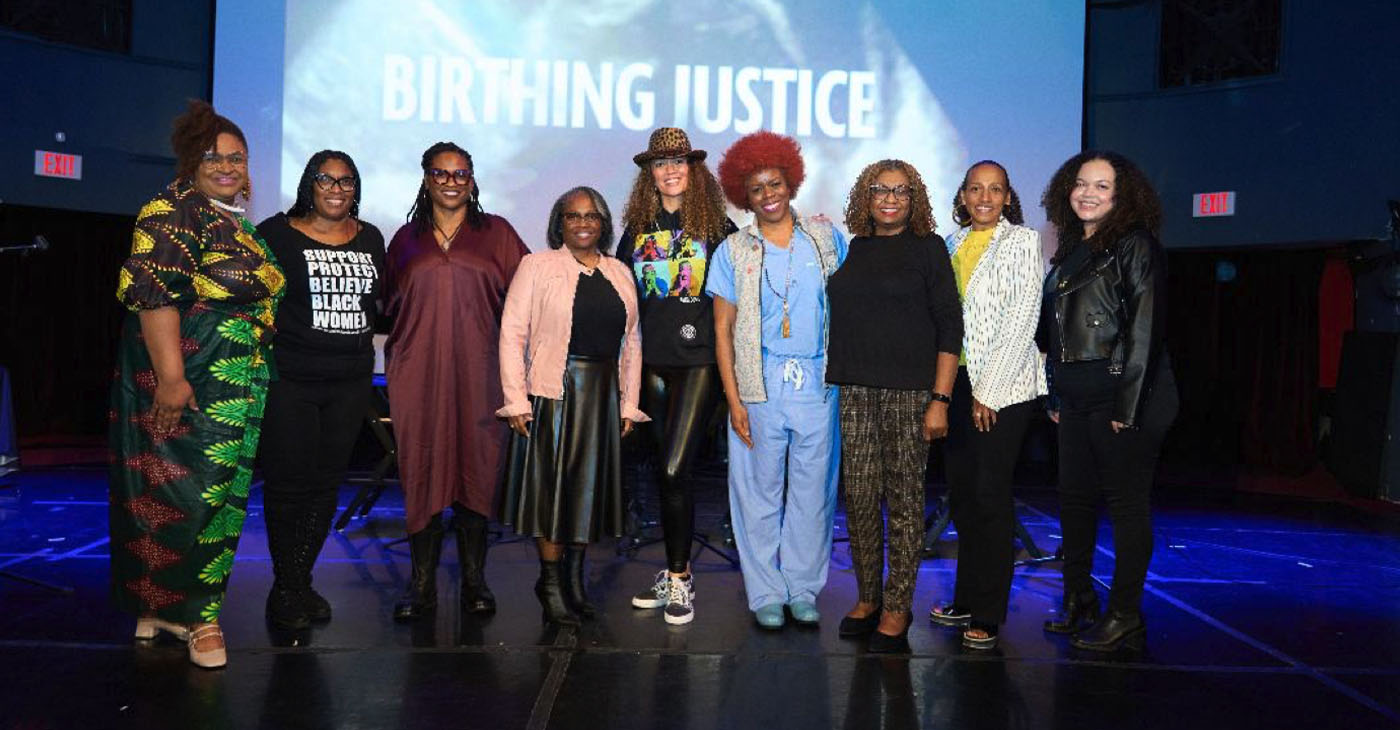

 Activism4 weeks ago
Activism4 weeks ago
 Activism4 weeks ago
Activism4 weeks ago
 Activism3 weeks ago
Activism3 weeks ago
 Business3 weeks ago
Business3 weeks ago
 Activism3 weeks ago
Activism3 weeks ago
 Arts and Culture3 weeks ago
Arts and Culture3 weeks ago
 Activism4 weeks ago
Activism4 weeks ago
 Activism3 weeks ago
Activism3 weeks ago
